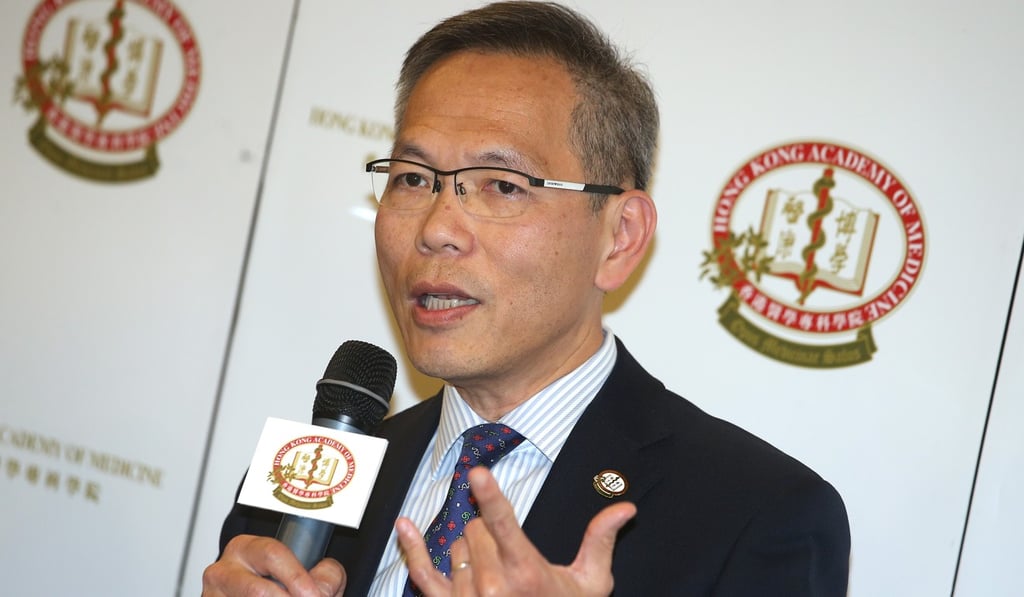Hong Kong Academy of Medicine proposes training scheme for young overseas doctors to address manpower crunch in city’s public hospitals
- Hong Kong Academy of Medicine will offer training places in its 69 specialities in nine of its 15 colleges, while talks are on for the remaining colleges
- Academy wants to attract young talented doctors and give them time to familiarise themselves with city’s health care system and training methods

Hong Kong’s medical specialist training institution has proposed an early admission scheme for overseas doctors who want to complete the rest of their training in the city, in a bid to ease a manpower crunch in public hospitals and health care institutions.
The Hong Kong Academy of Medicine will offer training places in its 69 specialities, in nine of its 15 colleges, while “active discussions are going on” for offering training places in the remaining six colleges. The exact number of places to be offered is yet to be determined.
“We want to attract young talented doctors to Hong Kong so they can familiarise themselves with the city’s health care system, training methods and types of diseases prevalent here. They can also provide extra medical hands in the long run,” Professor Lau Chak-sing, president of the academy, said in an interview.
Chief Executive Carrie Lam Cheng Yuet-ngor said in her policy address earlier this year that the government would explore the feasibility of offering more incentives to overseas doctors to receive specialist training in Hong Kong, while not compromising opportunities for locally trained doctors.

Public hospitals are short of about 350 doctors, and resources are further stretched during the flu season, which causes a surge in the number of patients.